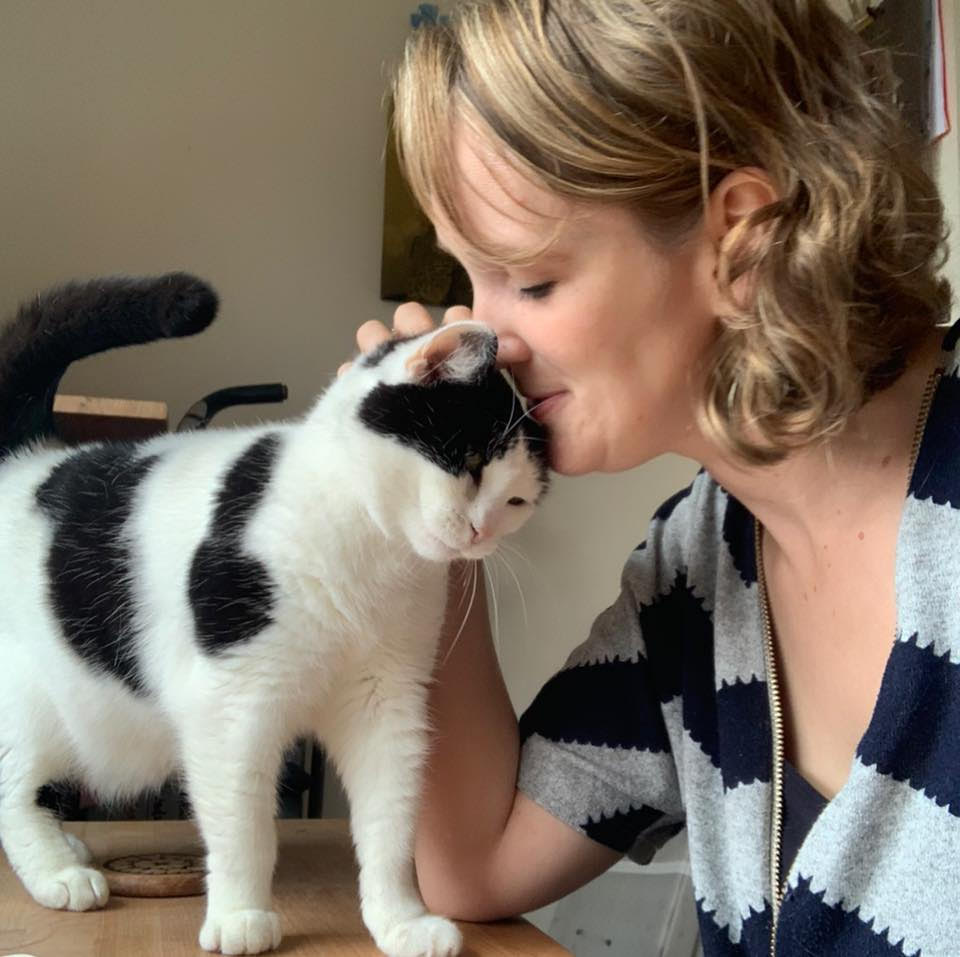Do cats know their names?
Do cats know their names? Find out whether or not your cat responds to your call from recognition or for food…

Do cats know their names? It’s a question that many cat owners will ask at some point. They’re clever enough to know how to pounce and catch prey, their ears perk up when they hear a rustle of their food bag and they know all the best hiding places in your home. But, do they know their name when you call it?
Any well-researched kitten parent knows the importance of both physical and mental stimulation to enhance their growth and development. Hence why they’ll spend ample amounts of time per day playing with their cat or ensuring they have the best cat toys lying around the house when they leave their cat alone for prolonged periods.
Research published in the Animal Cognition journal shows that cats can discriminate their owner's voice from that of a stranger but is there research to suggest they know their names? We found this out for you and spoke to two expert feline behaviorists to hear their verdict…
Do cats actually recognize their name?
If you’ve ever called a cat by its name, witnessed it look up to you when you say it, and perhaps they’ve even come running over to you, then you probably wondered if it actually registers that word as its name - or they’ve just worked out that they will probably get something good from a human when they answer to this call. Most cat parents will have their fingers crossed for the former.
We spoke to Elizabeth Waring, a feline behaviorist with over a decade’s experience working in animal behavior, to find out what she had to say on the matter of cat-calling. “Yes,” she confirms enthusiastically, “As owners, we naturally tend to give our cats names and a study by Saito and colleagues (see below) was the first to research this specifically and found that cats do indeed recognize their own names.”
Psychologists at Tokyo’s Sophia University discovered cats can actually recognize their own names. The research was published in 2019 in the Scientific Reports journal and adds to existing research conducted by the lead author of this study who previously had unveiled that cats can recognize their owners’ voices.
After observing household cats and cats living in cat cafes, the researchers were able to reach this conclusion. They found that cafe cats were able to distinguish their own names from general nouns but they were unable to distinguish their names from other cats in the cafe. Whereas house cats could identify their own name from general nouns and from that of other cats in the household. This led the researchers to conclude that our feline friends are able to discriminate the content of human language according to phonemic differences.
PetsRadar Newsletter
Get the best advice, tips and top tech for your beloved Pets

Why doesn’t my cat respond to its name?
It’s possible that your cat hasn’t fully learned their name yet. If you have welcomed a new kitten into your home it will take time for them to adjust to having their first ever name. Likewise, if you have adopted an adult cat who was named before you brought it home and changed it, they will need time to process and understand this.
You may also have a cat with a slight case of ‘selective hearing’, AKA, they hear what they want to hear and respond to things that serve their best interest. Feline behaviorist, Lucy Holie tells us, “Cats are quick learners and can understand the relationship between words and consequences.”
“For example, telling your cat it’s dinner time before placing down any food will see your cat running ahead of you to the kitchen before you’ve even opened the cupboard as they learn ‘it’s dinner time’ means food is coming.”
How to teach a cat its name
Waring explains to us that teaching a cat their name should always be done positively by using something they individually find rewarding, such as food, play, or even a gentle fuss.
“Cats learn to quickly make associations between neutral cues or words such as their name and things they enjoy and find rewarding,” she notes, “Repeatedly saying the chosen name when your cat is near you and immediately following it with a reward will teach your cat that their name being said results in something great happening!”.
How do I know if my cat knows their name?
If you want to test if your cat really does know their name, and get some reassurance that you didn’t waste hours of your life researching ‘unique names for cats’ before naming your little moggy, then you could apply a similar method used by the researchers at Tokyo’s Sophia University.
Think up a collection of random nouns or words and say them to your cat, making sure to fully annunciate them, leaving ample time in between each word and watching your cat’s response to each. After this sequence, then say your cat’s actual name and look for what their body language displays. Do they look up to you, do their ears shoot up? While the average cat owner will never fully be able to confirm this (at least not scientifically), this will offer a fairly good indication of how your cat responds to their name when you utter it.

Cats might not be capable of understanding everything we say to them but Waring tells us, just like with dogs, cats can be taught to perform behaviors following specific cue words. Or says Waring, “They will form associations with certain words if they are always followed by rewards.”
“It’s helpful for cats to learn their names as it means we can get their attention easily, call them to us as needed, and is a great starting point for any further positive training with our cats, something which can be beneficial for their welfare.”
Why not find out more with these 10 facts about cats you never knew or clue yourself up on how to play with a cat.

After completing a degree in Animal Behaviour and Welfare and a Master’s degree in Veterinary Parasitology both at the University of Bristol, Elizabeth worked in the animal charity rehoming sector for eight years. During this time, Elizabeth worked for two of the UK’s leading animal charities, Cats Protection and Blue Cross respectively. Elizabeth completed her MSc in Clinical Animal Behaviour from the University of Lincoln and began working for International Cat Care where she wrote many articles on feline behaviour for both owners and the veterinary sector. Since 2022, Elizabeth has been focusing on running her own cat behaviour business for private clients. She is a Candidate Member of the Fellowship of Animal Behaviour Clinicians and member of International Cat Care’s Feline Wellbeing Panel.

Lucy is a feline behaviorist and has been helping cat guardians resolve their cat’s challenging behavior since 2010. She completed a Master’s degree in Companion Animal Behaviour Counselling at the University of Southampton and is one of only a handful of exclusively feline Clinical Animal Behaviourists registered with the Animal Behaviour and Training Council (ABTC). As well as working directly with cats in their homes, Lucy also shares her knowledge of cat behavior through lectures, articles and blogs to reach as many cats as possible. She lives in Southampton with her two cats, Fig and Sparx, and Labrador Bucky.

With over a year of writing for PetsRadar, Jessica is a seasoned pet writer. She joined the team after writing for the sister site, Fit&Well for a year. Growing up with a lively rescue lurcher kindled her love for animal behavior and care. Jessica holds a journalism degree from Cardiff University and has authored articles for renowned publications, including LiveScience, Runner's World, The Evening Express, and Tom's Guide. Throughout her career in journalism she has forged connections with experts in the field, like behaviorists, trainers, and vets. Through her writing, Jessica aims to empower pet owners with accurate information to enhance their furry companions' lives.
